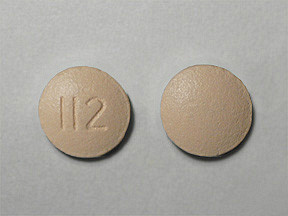SITAGLIPTIN - ORAL
PHONETIC PRONUNCIATION: (sit-a-GLIP-tin)
COMMON BRAND NAME(S): Januvia
GENERIC NAME(S): sitagliptin phosphate
Uses
USES: Sitagliptin is used with a proper diet and exercise program and possibly with other medications to control high blood sugar. It is used in people with type 2 diabetes. Controlling high blood sugar helps prevent kidney damage, blindness, nerve problems, loss of limbs, and sexual function problems. Proper control of diabetes may also lessen your risk of a heart attack or stroke. Sitagliptin is a diabetes drug that works by increasing levels of natural substances called incretins. Incretins help to control blood sugar by increasing insulin release, especially after a meal. They also decrease the amount of sugar your liver makes.
How to use SITAGLIPTIN - ORAL
HOW TO USE: Read the Medication Guide provided by your pharmacist before you start using sitagliptin and each time you get a refill. If you have any questions, ask your doctor or pharmacist. Take this medication by mouth with or without food, as directed by your doctor, usually once daily. The dosage is based on your medical condition, kidney function, and response to treatment. Take this medication regularly to get the most benefit from it. To help you remember, take it at the same time each day. Carefully follow the medication treatment plan, meal plan, and exercise program your doctor has recommended. Check your blood sugar regularly as directed by your doctor. Keep track of the results, and share them with your doctor. Tell your doctor if your blood sugar measurements are too high or too low. Your dosage/treatment may need to be changed.
Side Effects
Precautions
Interactions
Overdose
Images
Reviews
Faq for SITAGLIPTIN - ORAL
Sitagliptin is an oral medication used to treat type 2 diabetes. It helps to control blood sugar levels by increasing the release of insulin and reducing the production of glucose.
Take Sitagliptin exactly as prescribed by your doctor. Typically, it is taken once daily with or without food. Follow your doctor's instructions carefully and do not change the dosage without consulting them.
Common side effects of Sitagliptin may include stuffy or runny nose, sore throat, headache, stomach pain, diarrhea, or nausea. Inform your doctor if any of these side effects become severe or persistent.
Sitagliptin can be used alone or in combination with other diabetes medications to effectively manage blood sugar levels. However, it is important to consult with your doctor before starting any new medication or making changes to your current diabetes treatment plan.
Before taking Sitagliptin, inform your doctor about any existing medical conditions, especially kidney disease. It is important to monitor kidney function regularly while taking this medication. Additionally, let your doctor know about all the medications you are currently taking, including over-the-counter drugs and dietary supplements, as some may interact with Sitagliptin.
Moderate alcohol consumption is usually not a problem while taking Sitagliptin. However, excessive alcohol intake can affect blood sugar control, so it is best to limit alcohol consumption and follow your doctor's advice.
Sitagliptin starts working within a few hours after ingestion. However, its full benefits may take several weeks to become noticeable. It is important to continue taking the medication as prescribed even if you do not immediately see improvements.
Disclaimer
IMPORTANT: HOW TO USE THIS INFORMATION: This is a summary and does NOT have all possible information about this product. This information does not assure that this product is safe, effective, or appropriate for you. This information is not individual medical advice and does not substitute for the advice of your health care professional. Always ask your health care professional for complete information about this product and your specific health needs.

No Reviews Yet